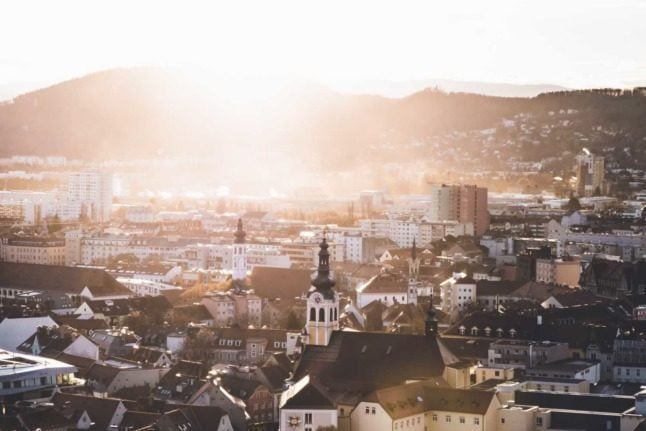The German professor for forensic psychiatry and psychotherapy at Georg-August University, Jürgen Müller, was asked to provide an opinion after two previous experts disagreed over whether 26-year-old Alen R. was of sound mind.
In his report Müller said the perpetrator was suffering from paranoid schizophrenia at the time of the attack on June 20th 2015.
All three experts agreed however that he “had carried out the act under the influence of a mental and spiritual abnormality of a high degree and there is a high risk of him carrying out further similar actions.”
State prosecutor Christian Kroschl now has to review the latest submission from Müller and is expected to decide in the coming weeks whether charges of murder or attempted murder should be brought against Alen R.
Kroschl has confirmed that although a suspect who is not of sound mind at the time of the incident can not be punished for his actions, he should be admitted to a psychiatric institute.
Ein erstes Video von d Amokfahrt in Graz. Das zeigt mit welcher Geschwindigkeit er durch d Herrengasse raste pic.twitter.com/KOZs3diFNC
— Roman Rafreider (@RomanRafreider) June 24, 2015
Alen R. killed three people and injured 36 others when he drove his car up to 100 km/hr through the Graz city centre.
As well as the four-year-old boy, Alen R. also killed a 53-year-old man, and a 28-year-old Muslim who worked for Graz social services, and who had gotten married just two weeks before the incident.
“Slave”
The 26-year-old wife of the man who killed three people after deliberately ploughing his car into a pedestrian shopping street in Graz gave a frank interview to Austrian television last year, telling how she was beaten and abused by her husband.
Bosnian Elena R., who has two sons with Alen R., told the ORF that when she moved to Austria four years ago to get married he took away her passport and treated her like a slave.
“He beat and kicked me every day, even during my pregnancy,” she said. She told reporter Christoph Feurstein that she was also abused by his parents, who the couple lived with.
She got to know her husband online, and said that he came across as “a good and loving person”. But things changed as soon as they were married. She said that she tried to run away but that she didn’t have any money, a phone or a passport. She was only allowed outside in the company of her husband or his parents.
She tearfully told Feurstein that Alen R. “wanted a slave who would give birth to his children, and cook and clean for him.” He told her that she had to wear a headscarf and forbid her to wear shorts. She said that he threatened to harm her family in Bosnia if she left him. “He threatened me with his gun, said he would kill me and throw my body in the river,” she said.
Killing spree
When she asked him for a divorce he became enraged and abusive, kicking her in the back and pulling out her hair. Elena said she was able to call her mother from the house and give her the address. Her mother then called the Austrian police who came to the house and helped her and her children escape to a shelter for abused women.
Alen R. had a restraining order placed on him, and it was three weeks after this that he embarked on his killing spree – telling police afterwards that he felt “persecuted”.
Elena said that she was shocked to hear what her husband had done and expressed her sorrow for his victims and their families.
Austrian prosecutors have confirmed that they are now investigating Alen R’s parents after the serious allegations of abuse.
The director of the women’s shelter where Elena has been staying told the ORF that she believes police should have begun an official investigation into Alen R. as soon as his wife pressed charges on June 11th 2015 – as her allegations were serious and she urgently needed protection.
Police were also called to the house in 2014 after Alen R. threatened his wife with a gun in front of their young children and fired shots in the garden.
The police said they did everything within their power but were hampered by “certain legal guidelines”.



 Please whitelist us to continue reading.
Please whitelist us to continue reading.